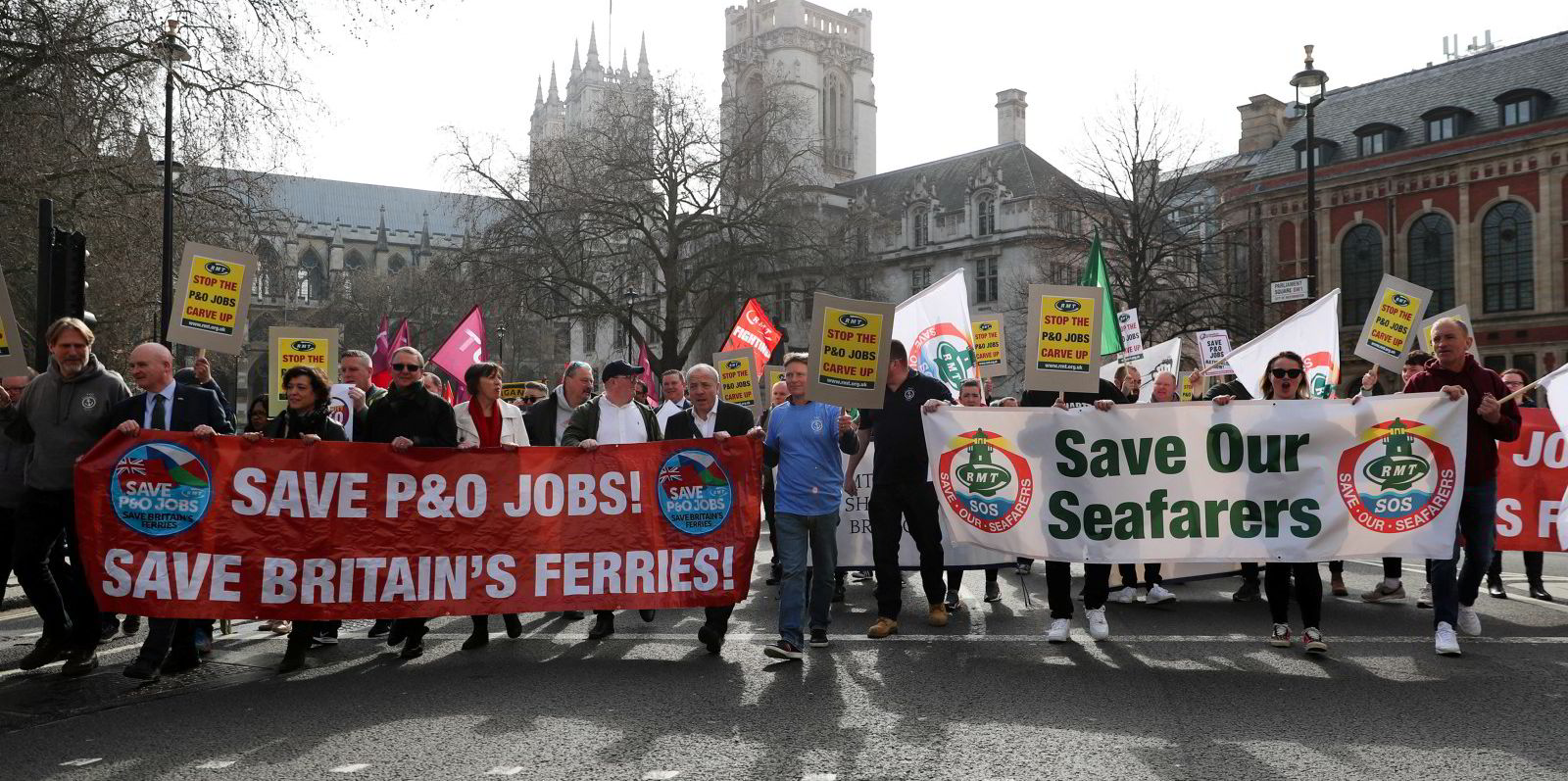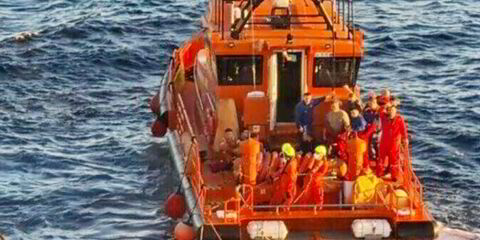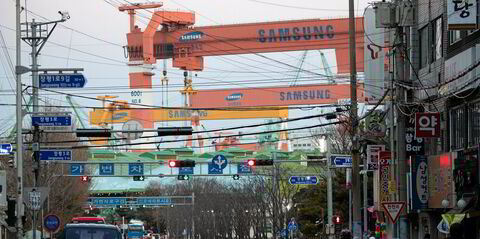P&O Ferries has handed the public relations industry a textbook example of how to damage a corporate reputation in double-quick time.
The extraordinary sight of hi-viz-jacketed security staff coming aboard vessels to force a dumped crew to leave ship is ugly to behold.
This is Brexit Britain — the island nation — where what some might think of as a national flag carrier has just laid off 800 British seafarers without notice. French and Dutch crews have apparently been spared. Mobile phones captured a manager on a Zoom call to staff reading from a script in a monotone voice — changing people’s lives.
What was P&O thinking of? Many may say this happens all the time in shipping — but if so, it is out of sight and out of mind in the deepsea sector.
It was clearly enough to shock Business Secretary Kwasi Kwarteng into quick condemnation of the company’s action.
Opposition political parties and unions such as the Brexit-supporting RMT are outraged, holding protests and promising legal action.
As I write this piece, the P&O Ferries website says Dover to Calais sailings “remain cancelled” and it is advising travellers to use services run by rival DFDS.
Services from Cairnryan in Scotland to Larne in Northern Ireland are also “suspended” — as is the connection between Hull in north-eastern England and Rotterdam.
The ferry website says: “Got a PR Related Quesion [sic]” and gives a mobile number to call. It rings until a voice says “this is an incorrect number”.
It looked at first sight as though P&O walked into this chaos completely unprepared and is now struggling to react and retrospectively explain.
Formal statements from the company early on said it had run up £100m ($132m) in losses and continuing with this state of affairs was simply “unsustainable”.
Clearly, a combination of Covid and Brexit has caused problems for all ferry operators — not just ones based in the UK, such as P&O, which handles around one-third of the seaborne trade between England and France.
In initial formal statements, P&O chief executive Peter Hebblethwaite described it as a “difficult but necessary decision”.
But carried out like this? The company’s website talks about its commitment to corporate social responsibility and how it has a vision to “lead the industry in setting standards for best practise in wellbeing”.
The redundancies have not just hurt the P&O brand — once the equivalent of royalty in the British maritime industry.
It has also scarred the image of its Middle East-based owner, DP World, which has major container terminals in the UK and whose suitability to be an investor in a series of planned British freeports is now being questioned.
The normally staid business bible, the Financial Times, called the sackings “brutal” and said DP World risked reputational damage for a “cynical” manoeuvre.
Were peremptory decisions on the ferry business taken in Dubai?
Calls to DP World failed and an email to the relevant person in Dubai bounced back. But finally, a UK PR agency working for P&O sent over a new statement on Tuesday.
This indicated that the decision to dismiss staff without consultation or warning was deliberate — an attempt to avoid what P&O thought would be a long period of disruption from industrial action.
The statement read: “We also took the view, in good faith, that reaching agreement on the way forward would be impossible and against this background, that the process itself would be highly disruptive, not just for the business but for UK trade and tourism.”
The company insists it has offered financial recompense to make up for the lack of warning and did everything possible to contact individual employees.
It said it was losing £1m a day while the vessels are not moving but hoped to have services back in action soon, probably using agency seafarers.
The P&O statement insisted that security staff handled their job with “appropriate sensitivity” and were not told to use force or handcuffs, as some have alleged.
Still, the whole thing is a mess: for P&O, for DP World and for the image of British shipping. Someone from the UK Chamber of Shipping should analyse what went wrong and how to avoid this Dover debacle from happening again.



